.png)
In today’s interconnected software world, APIs are the glue that holds modern applications together—especially in microservices and distributed systems. But when these APIs break due to mismatched expectations, the result can be outages, costly debugging, and delayed releases.
This is where API Contract Testing comes in. By validating the agreement between an API provider and consumer, teams can detect integration issues early—long before they reach production.
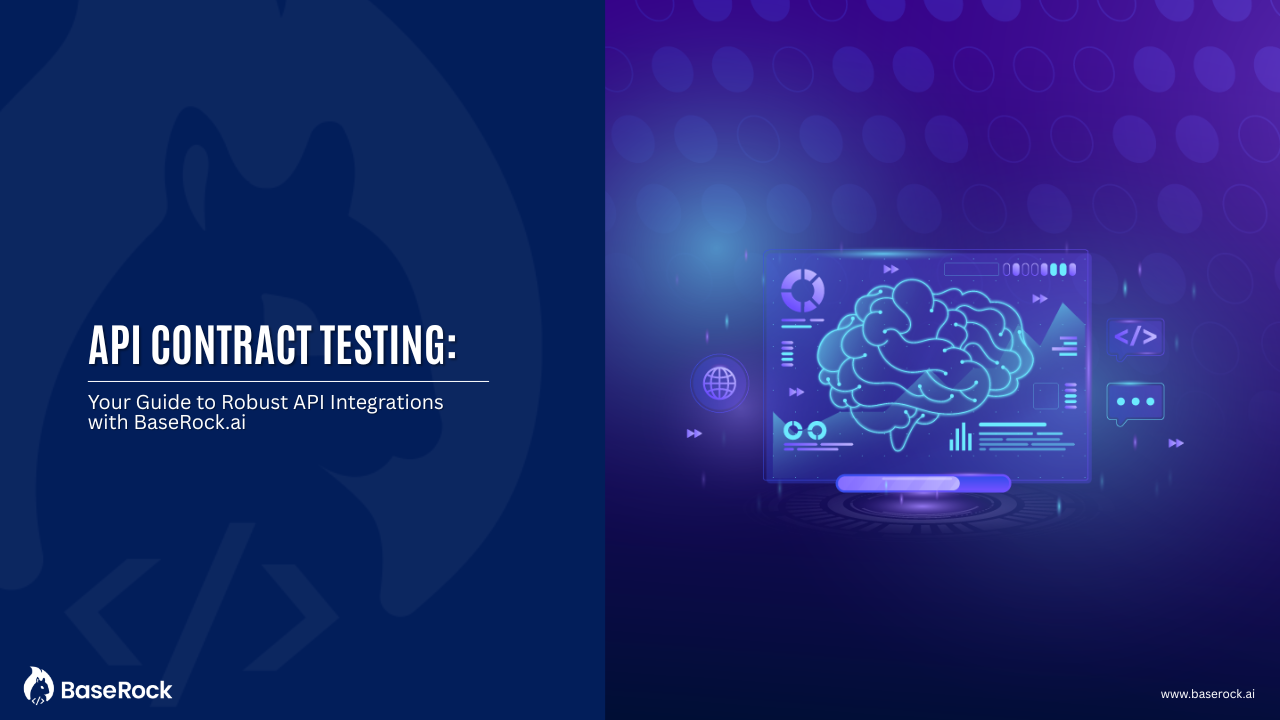
Whether you’re a developer, QA engineer, or DevOps professional, this guide will walk you through what API contract testing is, why it matters, the best tools, and how BaseRock.ai makes it easier. You’ll also learn best practices to ensure your API interactions are always reliable.
API Contract Testing is a method of verifying that two systems (usually a provider API and a consumer application) can communicate as agreed—based on a predefined API contract.
An API contract defines:
The main idea is that both sides honor the agreement:
Unlike traditional testing, contract testing focuses on the agreement itself, not the internal logic.
This makes it especially useful in microservices environments where APIs evolve rapidly.
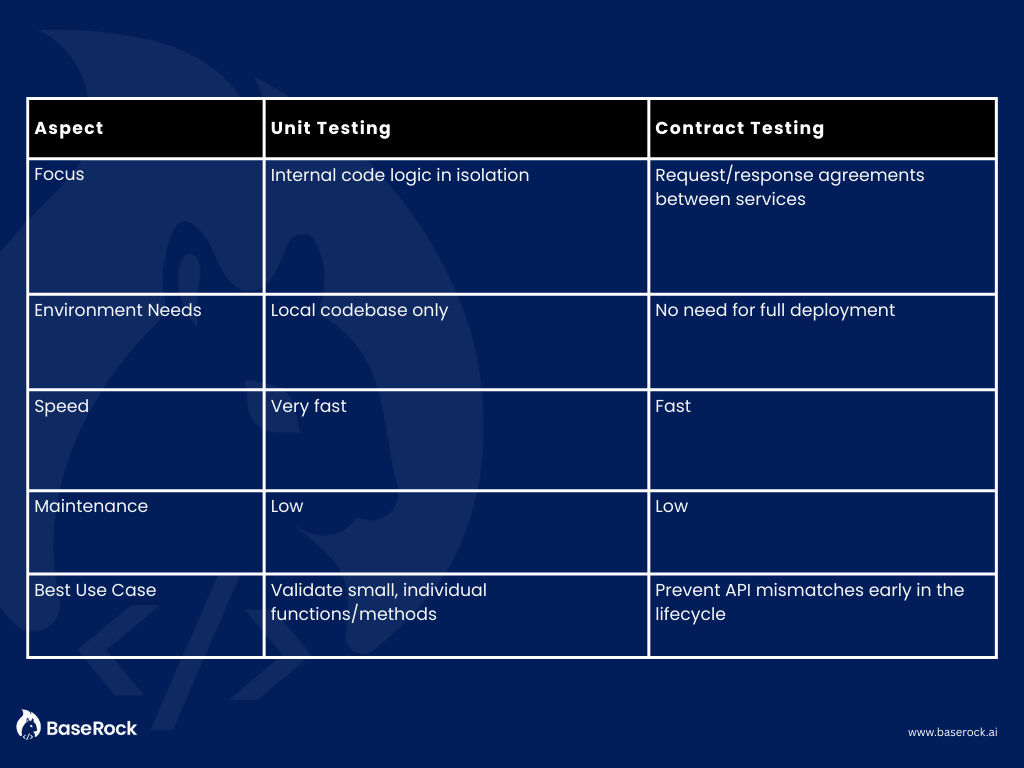
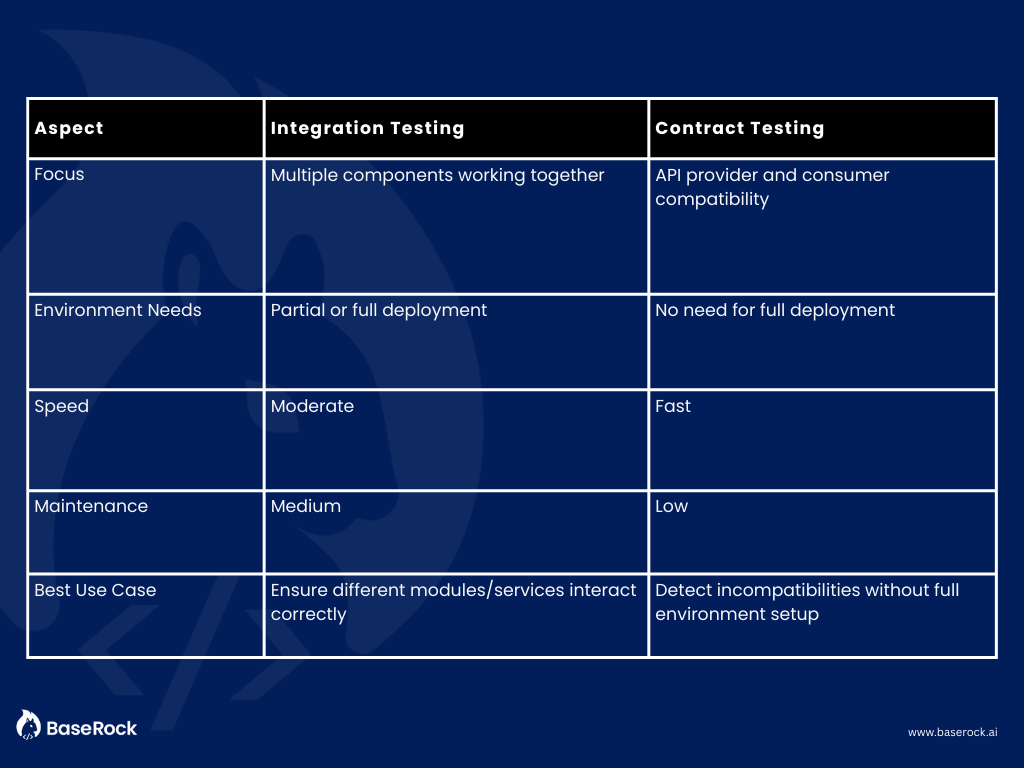
Contract Testing vs End-to-End Testing
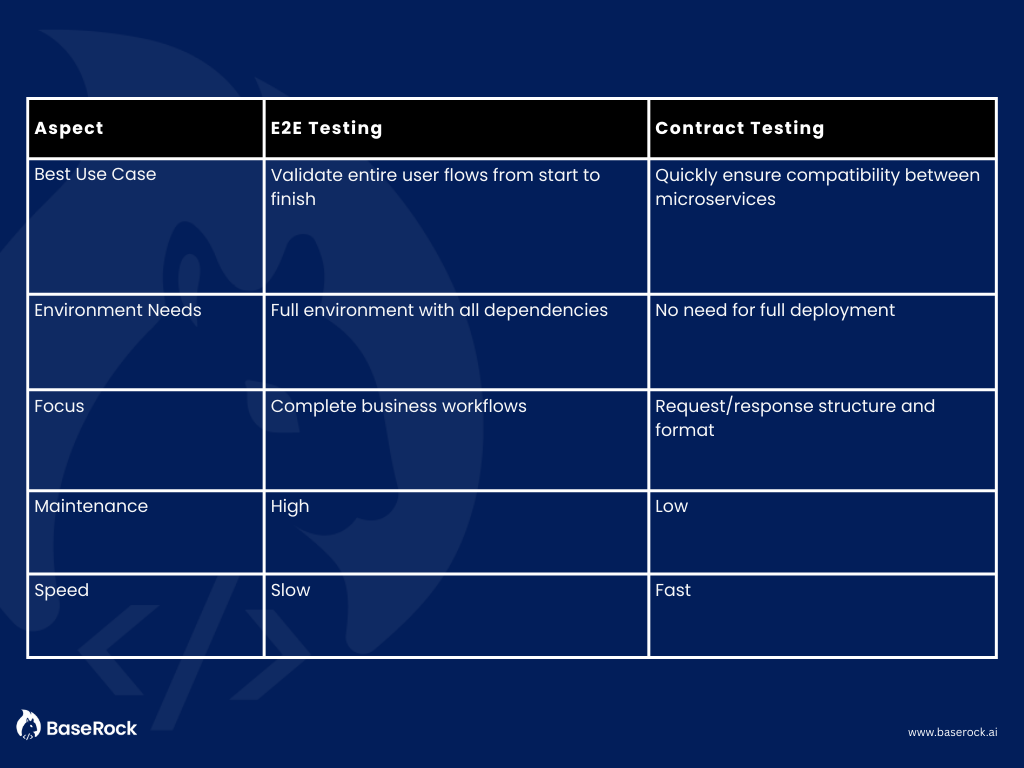
In microservices architectures, a single service change can break dozens of dependent services. Without contract testing, these issues often surface late in the development cycle, when fixes are more expensive.
Key benefits of API Contract Testing:
💡 According to a 2024 survey by Postman, API issues account for over 60% of integration failures in microservices-based applications—most of which could be avoided with contract testing.
Here are some of the best API contract testing tools in 2025, with their use cases:
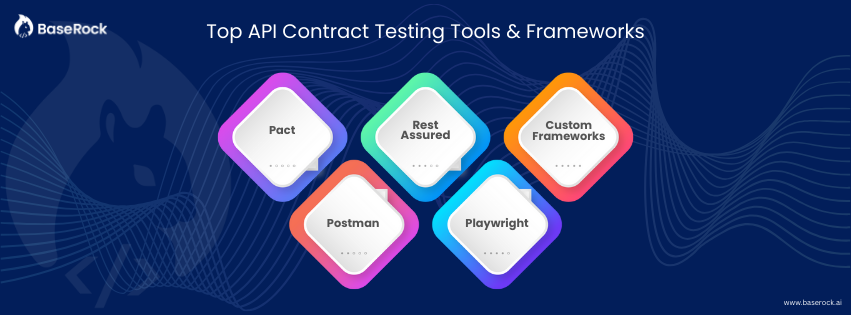
BaseRock.ai makes automated API contract testing faster and easier by combining intelligent test generation with seamless CI/CD integration.
BaseRock-specific advantages:
API Contract Testing is essential for ensuring reliable, scalable, and maintainable API integrations—especially in microservices environments. By validating agreements early, teams reduce risks, speed up releases, and improve cross-team collaboration.
BaseRock.ai takes this to the next level with automated contract test generation, AI-powered maintenance, and seamless CI/CD integration—freeing teams from manual test creation and updates.
1. What is the API contract tool?
An API contract tool validates the request/response structure between API providers and consumers, ensuring both meet agreed specifications.
2. Which tool is commonly used for API contract testing?
Popular tools include Pact, Postman, and Rest Assured.
3. Is contract testing the same as API testing?
No. API testing checks functionality, performance, and security, while contract testing focuses specifically on compatibility agreements.
4. How to write contract tests for APIs?
Define your contract (OpenAPI/Swagger), then use a framework like Pact or Rest Assured to validate requests and responses.
5. What is the best way to test an API?
Combine contract testing with functional, integration, and performance testing for comprehensive coverage.
6. How to write contract tests for third-party APIs?
Use schema validation tools and mock servers to test against the provider’s contract without relying on live systems.
Flexible deployment - Self hosted or on BaseRock Cloud